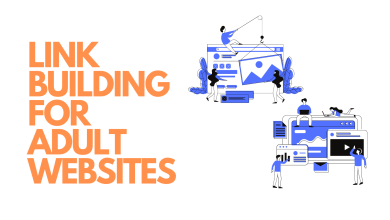Zai Rickards: What makes Digital Marketing through Experiential Learning Effective?
For Zai Rickards, that is the core of experiential marketing

Do you want to draw more attention to your events and ensure that as many users as possible leave feeling fantastic? In this case, they’d be so impressed, immersed, or inspired by the experience that they couldn’t help but inform others about it.

For Zai Rickards, that is the core of experiential marketing. This tactic offers its users or guests important face-to-face and offline, personal experience (and online, which we’ll discuss later) to achieve a business goal.
To make the point clear, Zai Rickards often asks aspiring marketers to consider traditional events such as concerts, festivals, and trade shows but make them interactive by connecting potential customers straight with brands while keeping the marketing message in mind.
What exactly is experiential marketing?
As the name implies, Zai Rickards describes experiential marketing as a trend that creates a brand-based experience for users instead of just a product-based one. Experiential marketing experiences vary depending on the brand and industry. Still, corporate events, webinars, and competitions are among the most common examples.
Zai Rickards often explains the phenomenon with a simple example. Take, for example, Apple, a brand frequently regarded as a frontrunner in this sort of publicity. They’ve recently been holding their well-known “photo-walks,” whereby an Apple employee helps guide customers around a community and tries to teach them how to snap photographs with their iPhone.
The company also hosts its annual Worldwide Developers’ Conference, its most important event of the year, which brings together thousands of software developers worldwide to discuss the latest trends.
What makes it so effective?
With experiential marketing, Zai Rickards encourages customers to interact with the brand and learn about its values as well as personality, rather than just its product. According to salesforce research, 84 percent of customers expect to be treated as individuals rather than numbers.
Therefore, Zai Rickards believes that brands enhance the personal connection between product and emotion by creating memories, which improves brand buy-in and conversions.
How to Incorporate Experiential Marketing into Your Company
In Zai Rickards’s experience, experiential marketing should be a part of any brand’s marketing strategy, regardless of size. Of course, small businesses lack the budgets to host huge events such as Apple, but that doesn’t mean they can’t create memorable moments for their market segmentation.
Zai Rickard further explains that SMEs and startups commonly use experiential marketing in the form of small-scale local and online events. Businesses must know their market and define realistic and tangible objectives for their experiences to succeed with experiential marketing.
Some of the more common experiential marketing goals include growing email subscriber lists, boosting social media followers, and increasing sales.
Zai Rickards suggests some standard practices to follow when implementing successful experiential marketing campaigns, whether in-house marketing teams or devoted experiential marketing firms. The following factors are influenced by brands suggested by Zai Rickards and other leading experiential marketing agencies.
Emotional Appeal – Digital & Offline
Establishing emotional connections is the main reason why Zai Rickards expected experiential marketing to be popular in 2021. For one thing, it transcends the physical constraints that currently prevent face-to-face event marketing from flourishing. Another benefit of this marketing strategy is that it coincides with the rise of digital emotions.
All Senses Are Appealed To
Do not wholly disregard physical factors as you appeal to digital emotions. Lifestyles may change dramatically both during and after COVID. However, Zai Rickards believes that our desire to undergo things persists physically.
The campaign need not be extensive. However, it would help if you took it a step further by enticing more or all senses.
Enhance Virtual Content
Suppose you have the resources or desire to engage in augmented reality (AR) or virtual reality (VR) experiential marketing campaigns. In that case, Zai Rickards recommends you consult with an experiential marketing agency. They can introduce you to the fundamentals of these channels.
Experiential marketing insights or opportunities know no bounds. You wouldn’t have to be excessively high-tech, either, depending on the industry or budget. Creating natural and live videos with believable content that makes people feel like they’re a part of the brand’s journey is another fine place to begin.



